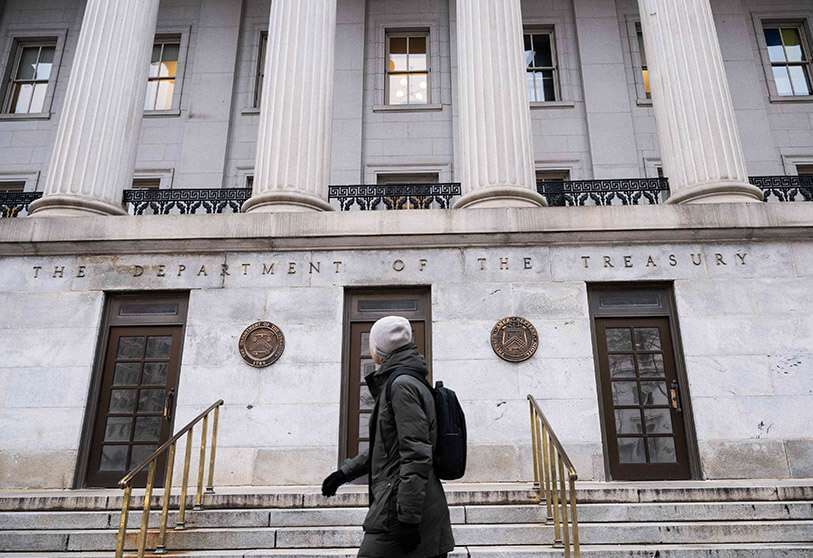New US sanctions on Iran's oil market affect trade with China

A statement from the US Treasury Department says that these sanctions hurt the entire sector and seek to increase financial pressure on Tehran and also limit the regime's ability to raise the revenue needed to destabilise the region and attack US partners.
This would also affect some 20 foreign-based vessels and companies accused of involvement in the transport of Iranian oil and petrochemical materials.
Consequences of US sanctions
New US sanctions on ships carrying Iranian crude have affected a commercial hub and slowed the delivery of oil from the Organisation of the Petroleum Exporting Countries (OPEC) producer to one of its main customers, China.
The flow of Iranian oil has two phases, with embargoed or Iranian-owned vessels leaving the country and then docking at a point in Southeast Asia. Here, the shipment is transferred from one tanker to another, which transports it to its final destination in China.
However, due to sanctions, ships carrying the cargo to China have been affected and have been forced to abandon this stage of the trade. As a result, lower prices for Iranian crude oil make it more expensive for independent oil refineries in China, which account for 90 % of exports.
In addition, refineries located in China have had to seek alternative supplies from Africa and other regions in the Middle East, as well as pick up previously unsold oil.

Oil trade between China and Iran
Trade with Iran has its risks due to US sanctions, but China trades with Iran because of the low price, since, due to international conflicts, Iran takes advantage by offering a discount. And also because of the good quality of Iranian crude oil.
This has allowed China to save almost $10bn in the first nine months of 2023 through trade with Iran, Russia and Venezuela, as all these countries sell oil at a discount, according to a report based on data from traders and ship trackers.
Maia Nikoladze, deputy director of Economic Leadership at the Atlantic Council, mentions that ‘important elements of this trade are the so-called ‘Chinese teapots’ (small independent refineries), dark fleet tankers and Chinese regional banks with limited international exposure’.
These ‘teapots’ where Iranian oil is refined are small, semi-independent refineries that function as an alternative to large state-owned companies, as they pose less risk to China because they do not trade in dollars and therefore do not need access to foreign financing, unlike state-owned companies, which need access to the US market.

Oil tankers and sanctions
The US added sanctions on some 20 oil tankers on 11 October and added 12 more the following week. As a result, all but one of the sanctioned tankers have been active in Southeast Asian waters this year, with eight tankers engaged in transiting to China.
These ships can be tracked in the oceans by software that tracks their location and course, as well as monitoring speed. To avoid tracking, according to Nikoladze, Iran and China use ‘a network of tankers with obscure ownership structures, which do not report their precise locations’.
‘Dark fleet’ ships carrying oil often disable the Automatic Identification System (AIS) so that they avoid detection or can change their exact location.
A prominent case is the oil tanker ‘Shannay Queen’ which has not sailed west of Peninsular Malaysia since August last year and in October was added to the US sanctions list and is now in waters close to Iran.
It changed its name to ‘Marigold’ and now operates under the flag of Guyana, rather than Malaysia, according to the Equasis maritime database. In this way, tanker operators are betting that the tactic will avoid investigation or generate suspicion in port inspections.
Also, the ship ‘Demetria 2’ changed its name to ‘Hong Lu’ before the sanctions were imposed and travelled between China and Southeast Asia. This ship started to move westwards from Malaysia and turned off its ‘Dark’ to avoid tracking.
In November FGE, an energy consultancy, said that Iran's oil exports to China and the United Arab Emirates would decline if Donald Trump tightened sanctions on Tehran, but that supplies to Venezuela would continue.
It is worth noting that in 2022 the US Treasury Department sanctioned two Chinese and other companies for being used by Iran to sell oil and evade US sanctions against its oil market.










